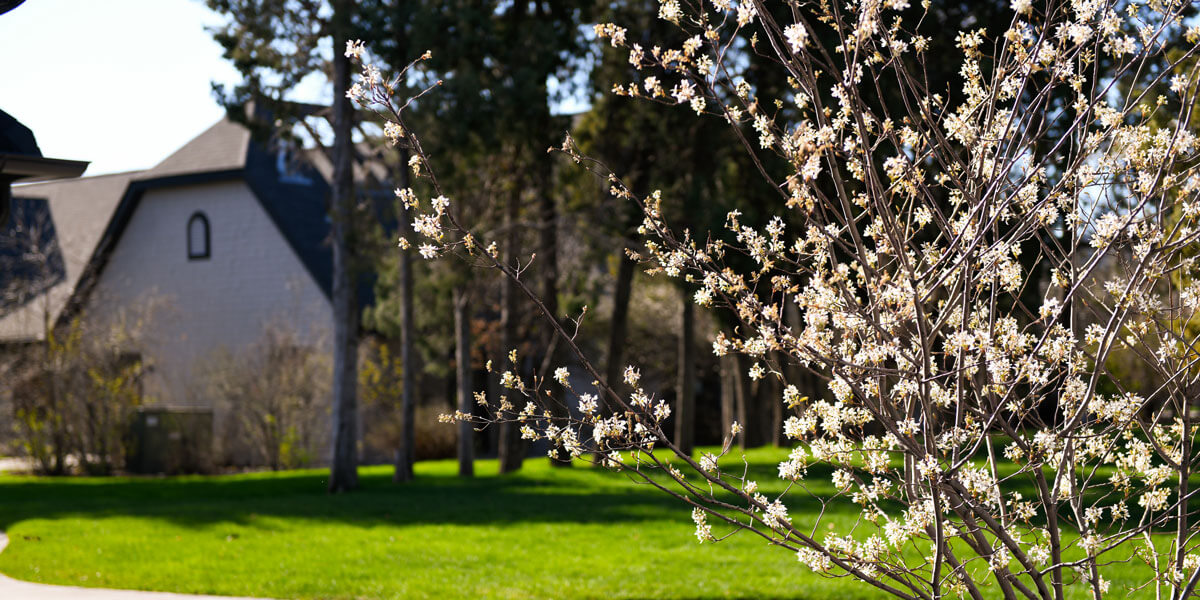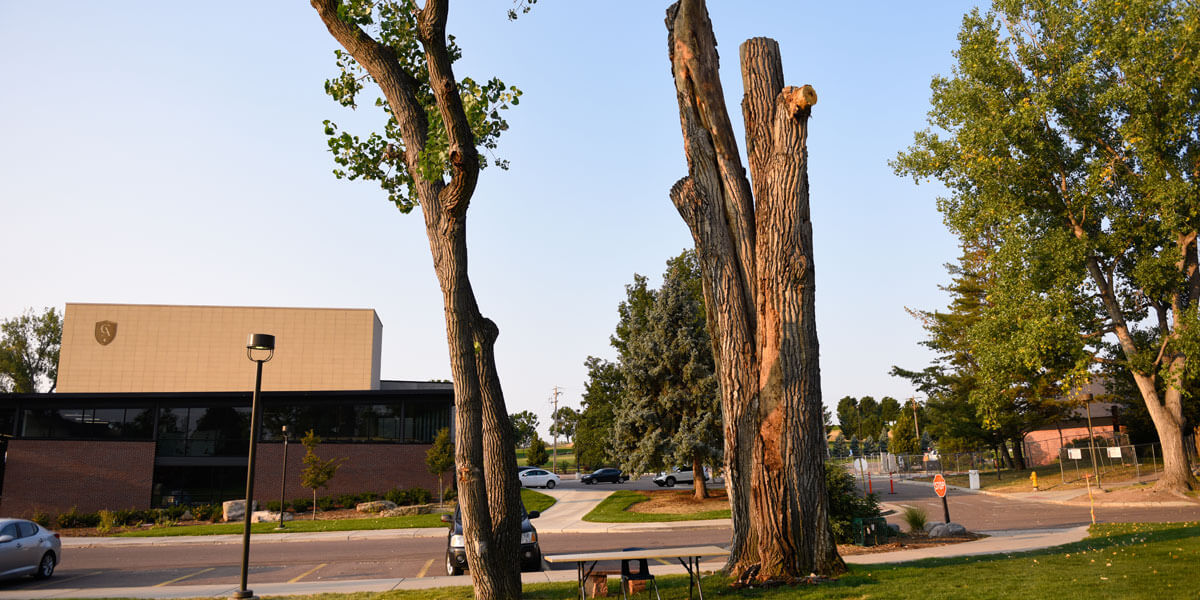There’s a noticeable change this fall on campus. Three of Colorado Academy’s timeworn cottonwood trees had to come down.
The nearly century-old campus landmarks have seen accelerated loss of leaves and branches during the past two years. Their aging trunks and limbs were hollowing out, putting them at risk of falling and posing a safety hazard for those who walked by. Two of the trees were cut to their stumps, but one—the cottonwood on the south side of the Smith Center—is home to a wild bee colony, and that was worth preserving.
Jesse Schumacher is CA’s Director of Operations. He’s also CA’s keeper of trees and bees.
He says CA actually has four active wild colonies on campus. They are hardy. The colony in the cottonwood is genetically very strong and every year spawns new bee colonies. Jesse works with CA parent Storey Wilson to monitor all of the wild colonies and integrate them into the teaching beehives on campus. The cottonwood with the wild hive no longer presents a risk, and the bees are thriving.

Trees, trees, and more trees
For Schumacher, keeping the bees is equal to planting and maintaining the right mix of tree species on campus. He’s now an expert on balancing plantings for pests and drought, since diversification protects more of what is planted.
“If I had to pick one of my most important legacies at CA, it would be the diversity of our tree species,” says Schumacher.
For every one tree Schumacher and his crews have had to take down, they have planted five to 10 times that. Since 2008, Schumacher has overseen the planting of 50-100 trees every year. How many has he taken down in those 12 years?
“Fewer than 20,” says Schumacher.
Jeff Welborn ’64, whose family lived in CA’s iconic Welborn House, remembers that it was his Uncle John Welborn who planted many of the trees on CA’s campus. He took the news with equanimity. “They do have a life, but as I understand it, the last several years of drought and temperature extremes have shortened that life for many,” he wrote to Head of School Dr. Mike Davis. “I’m so glad you are planting new ones.”
With 94 acres to plant and groom, Schumacher’s arboriculture ensures a beautiful campus for decades to come.
